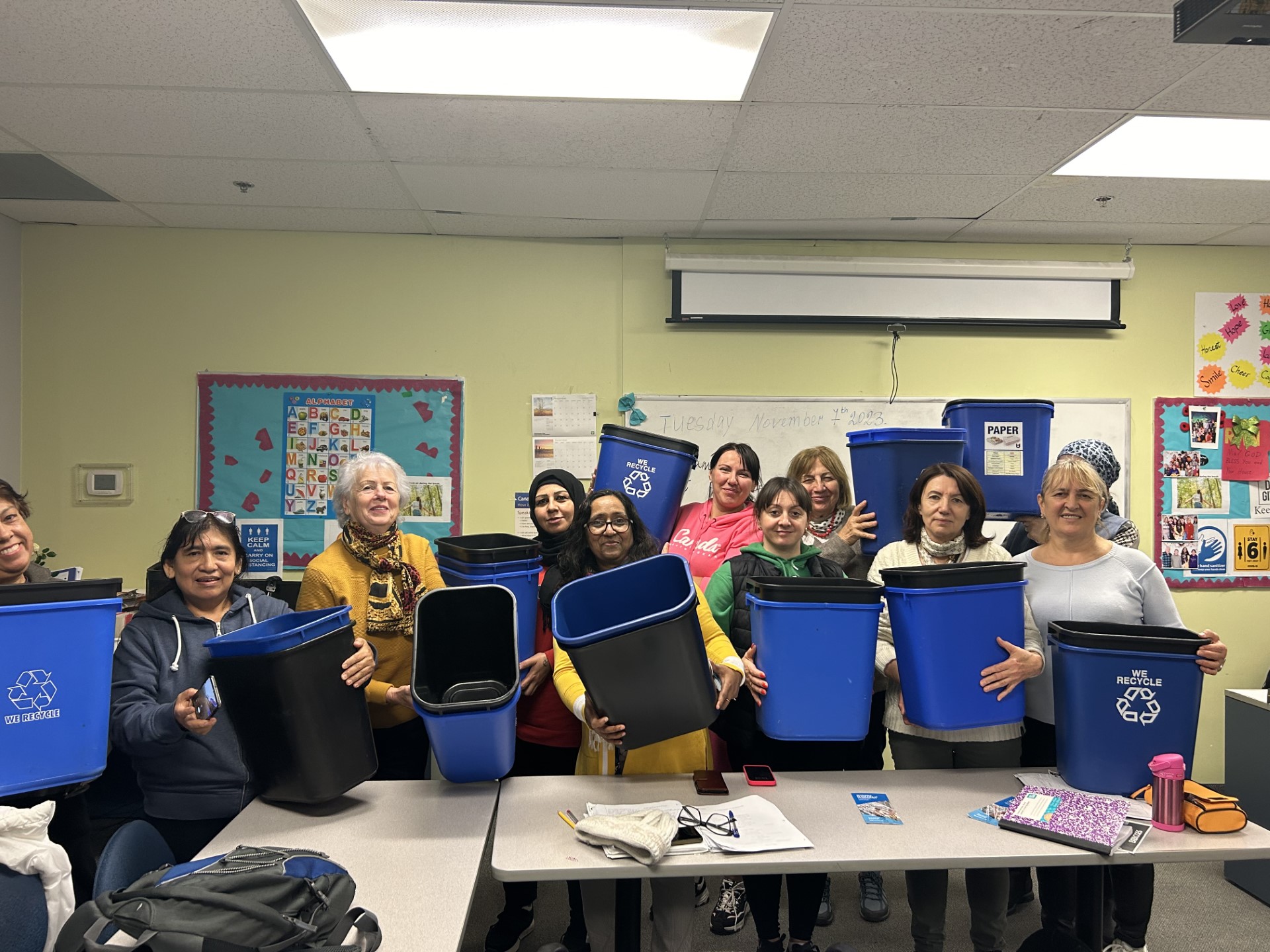Background
University Health Network (UHN) is a health care and medical research organization in downtown Toronto with a passionate environmental sustainability team. Over the past few months, the team has been undergoing a transition of getting rid of their individual under-desk waste bins and replacing them with centralized multi-stream waste bins in common areas.
The reason for this shift is to reduce the amount of mixed garbage, recycling, and organics that typically accumulate in conveniently placed under-desk bins. Instead, staff are encouraged to get up from their desks and walk their waste to a centralized bin where it can be sorted in the appropriate stream. This also has the added benefit of extending the reach of compost collection, as the previous system had very little compost collection outside of some main areas.
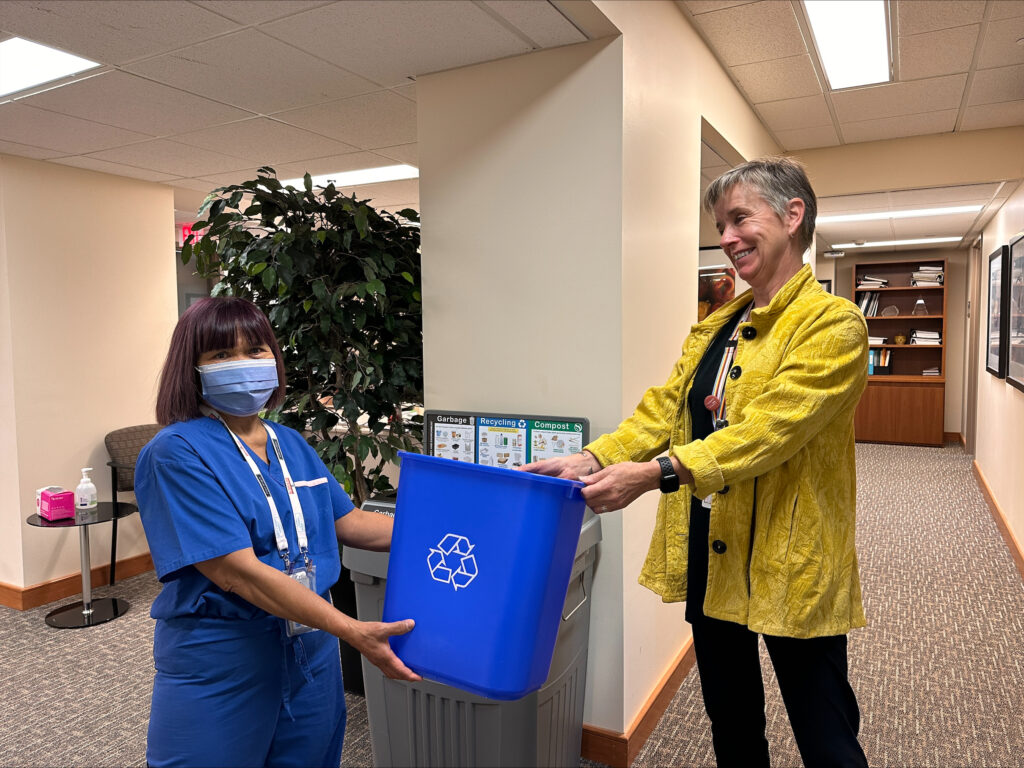
Scope of the Project
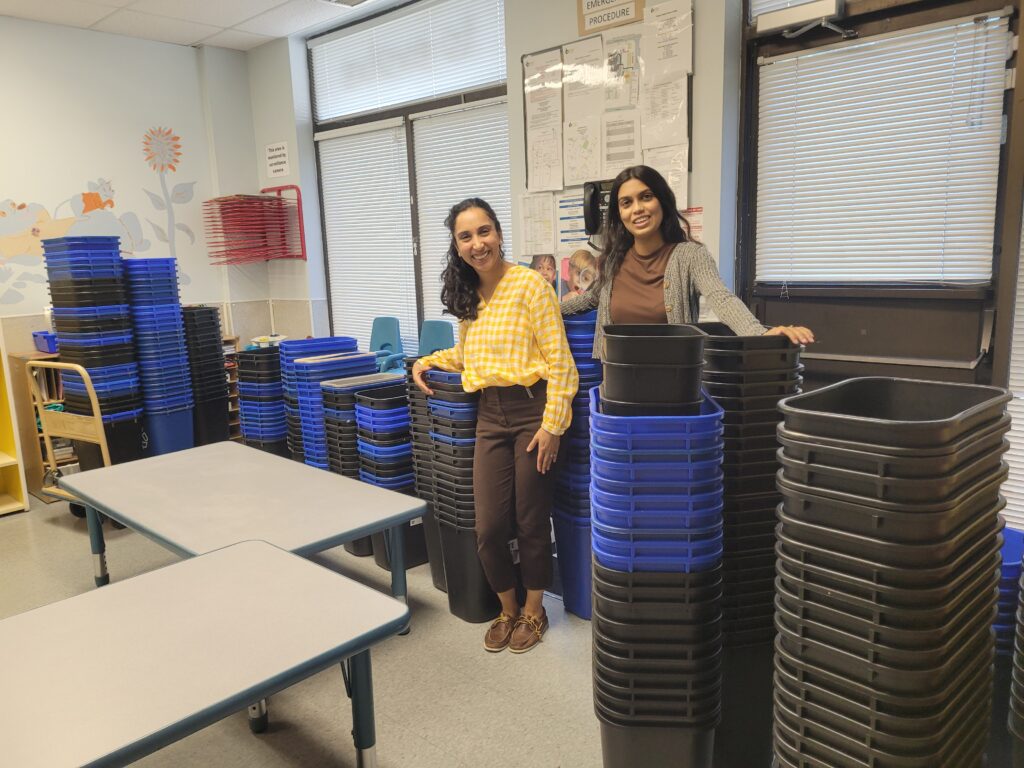
The project entails switching out bins from all the offices in the four large hospitals under UHN’s care. So far, Partners in Project Green’s Material Exchange program has helped UHN find new homes for over 500 waste bins and continues to support UHN as more bins are being transitioned out. One large exchange included over 300 bins being sent to Newcomer Centre of Peel.
Solution Finding
Newcomer Centre of Peel (NCP) is a multi-service charitable non-profit organization that assists newcomers in settling and integrating into Canada. Part of the services provided by NCP is helping parents understand the resources available to them in Canada, including municipal recycling programs and proper waste sorting.
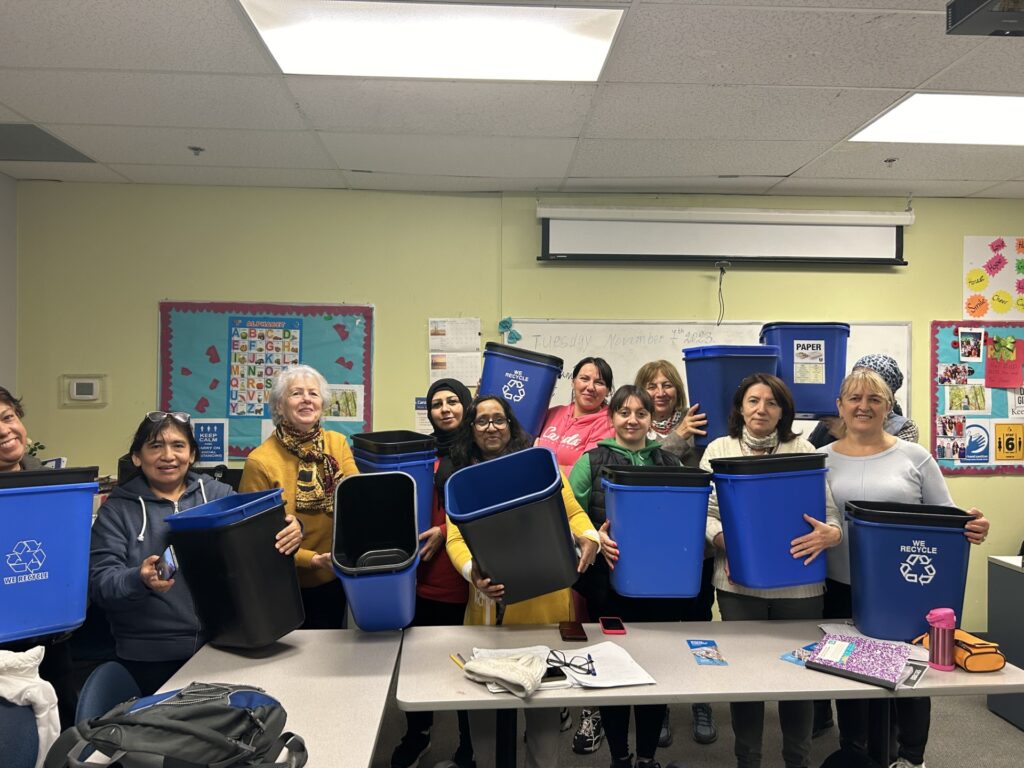
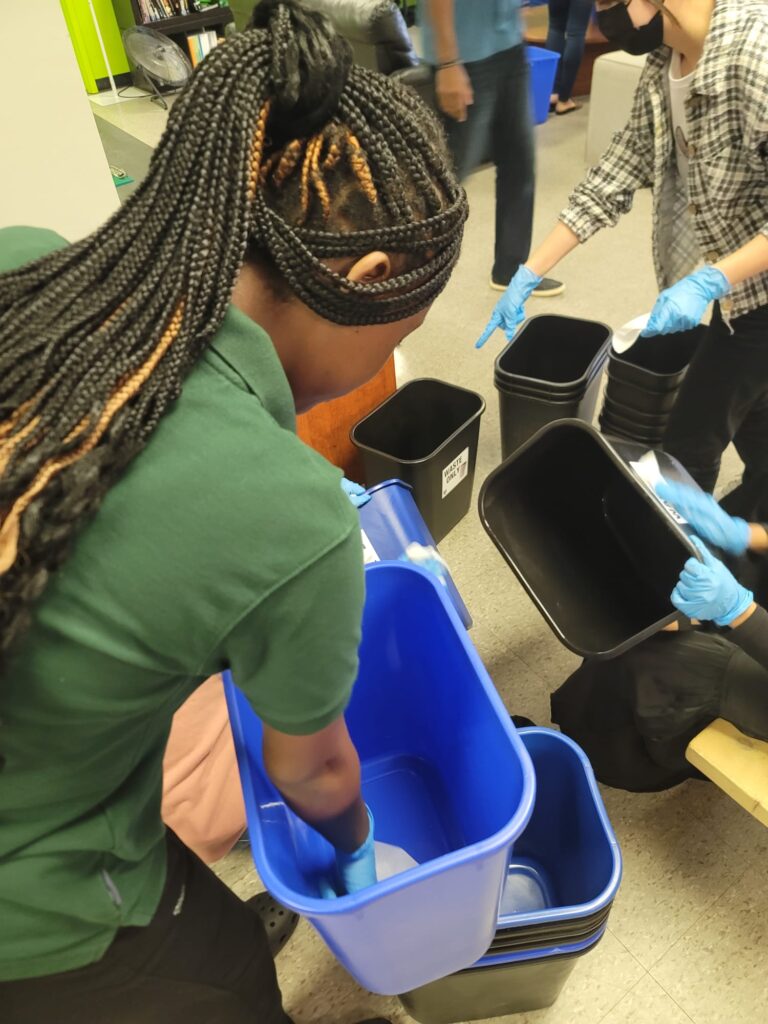
As part of their Expression Studio workshops and regular services (including language classes, employment services, and childcare services) the NCP gave away these desk-side garbage and recycling bins while educating clients on proper sorting. They also utilized the support of high school students who cleaned the bins before giving them away.
Key Metrics
In less than two months, NCP had given away 166 garbage bins and 176 recycling bins to newcomer families. That’s about 456 kg (1,024 lb) of plastic diverted from landfill.
Some families are using the bins for their intended use (garbage and recycling), while others are using the bins for storage and creative uses.
“Thank you to Partners in Project Green’s Material Exchange program for laying the groundwork for this exchange to happen. We are very thankful for the coordination involved in receiving the bins.”
– Shari Harris, Parenting Education Coordinator, Newcomer Centre of Peel
Lessons Learned
A key learning from UHN during their transition project was to give each department and staff member plenty of notice leading up to taking away their bins. This includes leaving memos on everyone’s desk and emails at least a week before the change.
It is also important to explain the rationale behind the transition to centralized bins, such benefits include less operational costs for recycling than garbage, audits have shown more successful waste sorting with centralized sort bins than conveniently placed under-desk bins, the ability to expand access to composting, and the need more less plastic bin liners.
A helpful suggestion to get staff on board was to not make a special trip to throw something away, instead, combine waste disposal with any time you would get up for a bathroom break.
From a receiver’s point of view, there is still often a stigma around receiving second-hand materials. But there can be financial and environmental benefits to doing so. Advice from the NCP is to be open minded when receiving materials. These waste bins can be used for so many other purposes such as crafts, storage, gardening, etc. and not just for waste collection.
Partners in Project Green’s Material Exchange program facilitates the exchange of material generated within our stakeholder community (businesses and non-profit groups) to divert waste from landfill, move towards a circular economy, and strengthen community ties. To learn more about the Material Exchange program, please contact Darlene.Coyle@trca.ca

